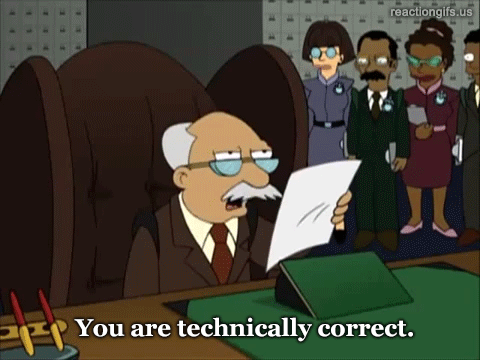|
The US stock market has survived two pandemics (including Spanish Flu), 2 world wars, a great depression, stagflation, a housing blowup. I think it'll survive crypto.
|
|
|
|

|
| # ? Jun 9, 2024 11:33 |
|
Yeah bitcoin should get destroyed in a downturn, but boomers loving LOVE crypto poo poo so you could see a lot of people selling their house for pennies and buying a bunch of bitcoin with it because they think the sky is falling. Itís hard to speculate what happens in a downturn, which is why itís not really our concern here because theyíre kind of always a blip that doesnít really matter in the long term.
|
|
|
|
Grand Fromage posted:There will be another crash. The mitigating factor is you're investing in the long term. There have been lots of stock market crashes, but it always recovers and goes back above what it was before the crash. So if you're investing for 20+ years, the crashes don't really matter. Quality post, right here.
|
|
|
|
Donít invest , the economy is gonna crash in the next 2-3 years.
|
|
|
|
Grand Fromage posted:There will be another crash. The mitigating factor is you're investing in the long term. There have been lots of stock market crashes, but it always recovers and goes back above what it was before the crash. So if you're investing for 20+ years, the crashes don't really matter. A good example of long term. The pre great recession peak of the Vanguard Total Stock Market Index Fund was in Oct 2007. Its lowest was about half the peak in March 2009. By Jan 2013 it was higher than the 2007 peak. Today its about 3.5x higher than the 2007 peak, which would have been "the worst time to invest". So don't worry about not investing before a crash.
|
|
|
|
to be clear i'm not talking about general downturns in the economy/dips in the stock market due to (for lack of a better term) natural phenomena; things that happen like major world events, or just general slow downs in the economy. i'm talking more about when these big corporations gently caress around because they know the government will bail them out. yeah sure, the general "economy" eventually bounces back up but tons and tons of individual people get screwed even when they technically did the right thing. saving, 401ks, index funds... like it seems like people responding are just saying this poo poo is inevitable, it happens.. so what else can you do? am i correct in that? people just accept that the banks will find some way to screw the individuals, and we just have to pray we don't retire within 10 years of these catastrophic events.. or even if it happens during our retirement, we have to hope that we can survive on our funds while the stock market recovers? cause what else can you do with your money, right? hoard it under your mattress? not trying to be flippant here but it just all seems a bit nutty, no? drainpipe posted:You probably weren't close to losing all your money since it was likely in an FDIC insured account. Sardonik posted:Because the banks own both parties. There was never hope for meaningful reform.
|
|
|
|
Strong Sauce posted:to be clear i'm not talking about general downturns in the economy/dips in the stock market due to (for lack of a better term) natural phenomena; things that happen like major world events, or just general slow downs in the economy. i'm talking more about when these big corporations gently caress around because they know the government will bail them out. yeah sure, the general "economy" eventually bounces back up but tons and tons of individual people get screwed even when they technically did the right thing. saving, 401ks, index funds... i get where you're coming from, but historically markets are cyclical and whether it's due to greedy lenders or greedy investors (or both or very occasionally neither) the market occasionally takes massive plunges. it's something that economists have managed to tame slightly (before 1933 it was a very frequent occurrence), but will likely never eliminate until we perfect the either the free market or the planned market. this is why you should regularly calculate your sequence risk and make your asset allocations accordinly quote:2008 was uncertain times. chase bought them for pennies on the dollar from the gov't, yet i had no clue what was going to happen to my money. i had come back from europe and had wired all my money into my wamu account... and ~2 weeks later WaMu went bankrupt. i mean i remember waking up seeing the news on TV and the reporter was in front of the literal WaMu i used and they were talking about how people were outside trying to get their cash out. nothing was assured. unless i'm misunderstanding you, your accounts were perfectly assured, unless the economic fallout was such that the united states was unable to borrow enough money to meet its fdic obligations, in which case the global banking and general economic systems just completely collapsed and no assets beyond beans and ammo have any value. quote:if bitcoin only affected the people who directly put their money into bitcoin then yeah, risk/reward. but my feeling is that as the banks come into the space, and assuming cryptocurrency doesn't crash before they begin offering some kind of weird cryptobond(?). they're going to entangle it with the rest of the global economy. hell who knows if it already hasn't done that. i don't think this is a long term investing concern for the reasons discussed above, but to put things in perspective, the us real estate market is more than a full order of magnitude greater than than the global crypto currency market. crypto may eventually represent an existential threat to the banking industry at some point in the future, but at least for the next several years there's no way that it presents the same risk as the mortgage crisis
|
|
|
|
Strong Sauce posted:so i just rewatched the big short again you seem to have entirely forgotten about this https://en.m.wikipedia.org/wiki/Dodd%96Frank_Wall_Street_Reform_and_Consumer_Protection_Act that link isnít parsing in saís mobile app so thereís also this link or just google the wiki page https://www.cftc.gov/sites/default/files/idc/groups/public/@swaps/documents/file/hr4173_enrolledbill.pdf pmchem fucked around with this message at 03:25 on Jun 14, 2021 |
|
|
|
pmchem posted:you seem to have entirely forgotten about this I don't know if this is commentary of some sort but that wiki link is broken lol e: woop jokes fucked around with this message at 03:29 on Jun 14, 2021 |
|
|
|
pmchem posted:you seem to have entirely forgotten about this thanks i did completely forget about this legislation, although to be fair i don't remember anything from it other than the volcker rule, which i had to also look up. i've been getting into putting money into the stock market... but it just seems really lovely that these banks can just kinda gently caress these up and seemingly not get punished for it. but yeah i guess what other alternative is there...
|
|
|
|
The US gov used some of the lessons of 2009 to avoid another financial meltdown/credit crisis during the pandemic. So at least some institutions are learning.
|
|
|
|
In retrospective interviews Regarding the interplay of banking and cryptocrud, the FDIC has noted a trend of startups offering crypto-based "savings" products that customers mistakenly believe are insured. Keep cash only in regulated and insured banks/CUs, and only up to the insurance limit in any one bank. Banks could be exposed to crypto risk if many large companies follow Microstrategy's example of adding it massively to their treasuries through debt issues. Microstrategy is one half-forgotten software company trying to relive late 90s glory, and not representative of the economy. After its last debt issue, S&P gave it a CCC+ (super-junk) credit rating, so other companies are on notice that any crypto adventures will come at a cost. The FDIC generally steps in when a bank's capital reaches a critical level, not when it is completely wiped out. It has a wide range of options under existing law for resolving the bank and covering deposits, the very last of which are borrowing from the government or telling depositors to wait. I understand that it may have been stressful to learn about this in real time, but it wasn't new. The general guidance regarding cash savings is to keep enough for an emergency fund and anticipated major expenses within 5 years. Anything above that is at risk from low interest rates and inflation. Gazpacho fucked around with this message at 08:09 on Jun 14, 2021 |
|
|
|
Xenoborg posted:A good example of long term. The pre great recession peak of the Vanguard Total Stock Market Index Fund was in Oct 2007. Its lowest was about half the peak in March 2009. By Jan 2013 it was higher than the 2007 peak. Today its about 3.5x higher than the 2007 peak, which would have been "the worst time to invest". So don't worry about not investing before a crash. And of course: https://awealthofcommonsense.com/2014/02/worlds-worst-market-timer/
|
|
|
|
I would say that investing is a case of "put your oxygen mask on first". We can all agree that there is a lot that is hosed up in our economy, but ultimately there is not much we as individual people can do about it. Not saving and investing won't change things since the system will likely still be there when you're old, but you'll just be living in poverty. This is not to say you shouldn't try to effect change through social/political action; you can do it in parallel. But definitely still save and invest even though the system looks hosed.
|
|
|
|
Grand Fromage posted:
Sometimes I think about buying rural property and building a sustainable home with off-grid capability to safeguard against this outcome. The big thing stopping me is that I really don't want to live out there full-time and that would be a big investment for something that would essentially act as a hedge. So boring index funds it is 
|
|
|
|
Like I said: what people really want is security and stability. Tiny homes, off-the-grid, and self-sufficiency through gardening is only one means to that end. I canít blame people for wanting it. Life is awful enough as it is without worrying about if you can still eat next month.
|
|
|
|
Strong Sauce posted:
Tbh , yes. As I think this post is a good explanation why. drainpipe posted:I would say that investing is a case of "put your oxygen mask on first". We can all agree that there is a lot that is hosed up in our economy, but ultimately there is not much we as individual people can do about it. Not saving and investing won't change things since the system will likely still be there when you're old, but you'll just be living in poverty. This is not to say you shouldn't try to effect change through social/political action; you can do it in parallel. But definitely still save and invest even though the system looks hosed. But yeah, Iím 08 there was def a huge fear all the banks would literally lose capitol and default. The only reason more banks didnít follow Leman Bros is the Gov bailout. But yeah, it is more likely that the US keeps chugging along, and while thereís a lot of bad depressing poo poo, both 2008 and 2020 show that when it comes to falling off a cliff, Congress and all the rest will pass legislation to keep people from showing up at their doors with pitchforks.
|
|
|
|
H110Hawk posted:You or your spouse needs earned income to cover it. Important distinction! 
|
|
|
|
Strong Sauce posted:people just accept that the banks will find some way to screw the individuals... Strong Sauce posted:i've been getting into putting money into the stock market... but it just seems really lovely that these banks can just kinda gently caress these up and seemingly not get punished for it. but yeah i guess what other alternative is there... Other people have done a good job of going over the actual investment concern, but to quickly address this since it seems to be a big part of the underlying concern as well -- The mitigating alternative is using a Credit Union instead of a bank, and something like Vanguard for investments. Investor-owned means they don't have the same incentives to screw you, an investor.
|
|
|
|
Speaking of market corrections, I got curious and looked at my investment returns on Vanguard, and big olí lol my dudes: Thatís something like a 23.7% ROR. Thereís no way we arenít going to see a correction at some point, cause this is wildly out of the ordinary for long-term market activity.
|
|
|
|
Strong Sauce posted:to be clear i'm not talking about general downturns in the economy/dips in the stock market due to (for lack of a better term) natural phenomena; things that happen like major world events, or just general slow downs in the economy. i'm talking more about when these big corporations gently caress around because they know the government will bail them out. yeah sure, the general "economy" eventually bounces back up but tons and tons of individual people get screwed even when they technically did the right thing. saving, 401ks, index funds... The two bolded sections tell me something about your understanding of long term investing. Short term saving should be in accounts that are unaffected by the overall market. The worst thing that would happen to savings account is the interest rate plummets to zero. 401k should be balanced to your age and risk profile. At 25 you've got 40 years ahead of you to recover. At 65 you'll be more conservatively invested and the market swing won't hit you as bad. That extends to the second bolded part. Retirement isn't a sudden switch where the value of your account is locked in. It should be mostly stable with a little growth, and that growth portion will hurt, and it'll come back in a decade when you need it. If you're 75, it better be very stable. Nobody's going to perfectly nail the amount to retire on comfortably, so you should aim high and manage the risk.
|
|
|
|
As with most 401ks, I've got a limited selection of funds I can choose from. It's kind of an odd mix, but following most of the advice in this thread, I want to invest aggressively with a balance between domestic and foreign stocks. For the former, there's an easy choice - VFIAX. For the latter, there's no Vanguard international funds, and in fact, looks like there's only one international stock fund - TCIEX, or TIAA-CREF International Equity Index Fund. It's developed markets, very low expense ratio...looks ok? But I doubt a TIAA/CREF fund would be anybody ITT's first choice. Right now, I'm 100% in VFIAX. Should I allocate 40-50% in TCIEX? Or get a balance by allocating more into a Vanguard international stock fund in my IRA/HSA/taxable accounts?
|
|
|
|
Even if (your financial institution of choice) goes down, there still might be a bit of hassle involved in getting to that FDIC-insured money. Back in the day I had cash frozen at...(Netteller?) for like a year and that wasn't super fun (not exactly the same but once-bitten, etc). Having reasonably-easily-accessible funds at more than one financial institution seems like a way to hedge against that (but not the overall doom scenario). I've got accounts at Vanguard, Fidelity, Schwab, and a credit union, which is almost certainly overkill. But in the past two years or so we have had "can't get in touch with Vanguard, can't trade on Robinhood, etc" situations so I'm fine with slightly more paperwork to sleep a little better at night.
|
|
|
|
Ramrod Hotshot posted:As with most 401ks, I've got a limited selection of funds I can choose from. It's kind of an odd mix, but following most of the advice in this thread, I want to invest aggressively with a balance between domestic and foreign stocks. For the former, there's an easy choice - VFIAX. For the latter, there's no Vanguard international funds, and in fact, looks like there's only one international stock fund - TCIEX, or TIAA-CREF International Equity Index Fund. It's developed markets, very low expense ratio...looks ok? But I doubt a TIAA/CREF fund would be anybody ITT's first choice. Right now, I'm 100% in VFIAX. Should I allocate 40-50% in TCIEX? Or get a balance by allocating more into a Vanguard international stock fund in my IRA/HSA/taxable accounts? Look at your investing holistically. Sum all of your savings you have earmarked for retirement. Now apply the % target allocations. Say you have $100k and you want a 70/30/0 split, that means you target $70k and $30k respectively. Now go to your most restricted account - likely the 401k - and buy whatever you have available and subtract it from the total. Now go account by account and do this until you reach your allocation. Do this once or twice a YEAR and you'll be close enough. If you have taxable money start by putting your international there. There is a potential tax benefit.
|
|
|
|
H110Hawk posted:Look at your investing holistically. Sum all of your savings you have earmarked for retirement. Now apply the % target allocations. Say you have $100k and you want a 70/30/0 split, that means you target $70k and $30k respectively. Now go to your most restricted account - likely the 401k - and buy whatever you have available and subtract it from the total. Now go account by account and do this until you reach your allocation. Ah that's interesting. So perhaps it does make sense to go all in on VFIAX for the 401k and balance it with VXUS in the taxable account. Any comments on TCIEX specifically?
|
|
|
|
Ramrod Hotshot posted:Any comments on TCIEX specifically? TCIEX tracks the MSCI EAFE index, which is mostly developed markets, and so is missing emerging markets. You should decide if that is fine for you. If you want to try to make it more like a total international fund, you will want to supplement with some emerging markets (like VWO) at a ratio of 3:1 TCIEX:VWO (reference: https://www.bogleheads.org/forum/viewtopic.php?t=244134). This can be done in some other account like old IRAs or brokerage. Note this is still not perfect as you'll be missing some countries like Korea, but it's as good as you'll get.
|
|
|
|
StormDrain posted:The two bolded sections tell me something about your understanding of long term investing. Short term saving should be in accounts that are unaffected by the overall market. The worst thing that would happen to savings account is the interest rate plummets to zero. yes you're right about savings. that was just me being ranty and needing to put something in. the second part you bolded, I'm referring to the general math problem where most of your compounding interest gains come within the last 10 years of whatever period you're trying to save over. just plugging very generic numbers, $10K initial, $500 monthly contribution over 40 years at 6% interest rate. Looking at the chart you'd hit ~$1 million+ within those 40 years. But most of the earnings start to come at year 30 of the graph. so if you get hit with a 2008 type of recession in that time you are kinda hosed even if you have other investments because you're generally out of time. seems like most people they're option is to just defer retirement. if you had retired before the crash hit, i assume you'd have put your money into much less volatile investments. Duckman2008 posted:Tbh , yes. As I think this post is a good explanation why. thanks i appreciate this comment... since i don't want to occupy this thread much further with this if it isn't the right place but yeah i just wanted to understand that other people recognized this aspect of it... that we're just doing this because there's no real realistic alternative..
|
|
|
|
Strong Sauce posted:thanks i appreciate this comment... since i don't want to occupy this thread much further with this if it isn't the right place but yeah i just wanted to understand that other people recognized this aspect of it... that we're just doing this because there's no real realistic alternative.. I think you'll get pretty universal agreement here about gently caress the bankers and the financial industry, but what are you going to do. I would like to see it change, but until then I'll keep playing the game to protect myself as much as I can. I have my ideology, and I also recognize my ideology is unlikely to succeed in my lifetime so I'm not going to martyr my own future over it. The only good thing about the entire ruling elite being invested in Number Go Up is that if you're lucky enough to have extra money, you can jump in on that and (most likely) benefit from it. That's why I don't worry too much about a full collapse. This is the only instance I can think of where their interests and our interests align, so there's a chance of not getting hosed.
|
|
|
|
Grand Fromage posted:I think you'll get pretty universal agreement here about gently caress the bankers and the financial industry, but what are you going to do. I would like to see it change, but until then I'll keep playing the game to protect myself as much as I can. I have my ideology, and I also recognize my ideology is unlikely to succeed in my lifetime so I'm not going to martyr my own future over it. This is exactly my outlook. And hoping for the best for my daughterís generation.
|
|
|
|
I don't think anyone in this thread is a fan of bankers and the financial industry, but everyone in this thread also wants a good life
|
|
|
|
Ramrod Hotshot posted:Ah that's interesting. So perhaps it does make sense to go all in on VFIAX for the 401k and balance it with VXUS in the taxable account. Exactly. My 401k is 100% S&P 500 and I lump it into my 60%ish total market allocation. It's the closest thing I have. My taxable brokerage has the entirety of my international and because of math to reach target allocations also has some % of a total market fund. I hit 40% international and still had money left unallocated so it went into the total market allocation. It's a common problem for people to think about each account as though they exist in a silo. Part of this is because lots of people have one or the other, or simply not a lot of money in aggregate between them so it doesn't really matter where they do what. Each account as a silo being perfectly allocated doesn't matter, and if you go into taxable it drags on your earnings due to realized (aka taxable that year) gains. No comments on the other fund - I haven't looked at it and am pretty bad at it. I just do what others are doing here.
|
|
|
|
Grand Fromage posted:This is the only instance I can think of where their interests and our interests align, so there's a chance of not getting hosed. Yeah America teaches you that, by aligning your interests with that of the wealthy, you can succeed pretty easily (at least wrt retirement). If your interests are not aligned with theirs, failure is nearly certain.
|
|
|
|
Oh and Friday I closed on my refi. 2.75% 30-year fixed and they're apparently cutting me a check for $1200. Down from 3.75%. It's only going to cost me a lot more total interest. 
|
|
|
|
H110Hawk posted:Exactly. My 401k is 100% S&P 500 and I lump it into my 60%ish total market allocation. It's the closest thing I have. My taxable brokerage has the entirety of my international and because of math to reach target allocations also has some % of a total market fund. I hit 40% international and still had money left unallocated so it went into the total market allocation. Thanks for your help. One other thing, could you elaborate a little more on this: H110Hawk posted:If you have taxable money start by putting your international there. There is a potential tax benefit.
|
|
|
|
Strong Sauce posted:the second part you bolded, I'm referring to the general math problem where most of your compounding interest gains come within the last 10 years of whatever period you're trying to save over. This problem was looked at by Ayres and Nalebuff in their book Lifecycle Investing. They identify exactly this issue, where the majority of your equity risk is concentrated late in your investing life. The solution proposed? Go greater than 100% equities early through some manner of leverage in order to spread the risk out. Definitely not for everyone, but an interesting thought.
|
|
|
|
Pollyanna posted:Speaking of market corrections, I got curious and looked at my investment returns on Vanguard, and big olí lol my dudes: I mean you also have a bit of a bias in that you started investing in a slowly recovering market and took advantage of big gains without having to suffer any downturns. Mine looks the same today too starting in 2013. If you were a few years older and started socking away money in 2006 your earlier gains would have been engulfed by the subprime mortgage crisis. Chiasmus fucked around with this message at 19:23 on Jun 14, 2021 |
|
|
|
Can I contribute $7,200 to the HSA? - HSA limits for 2021 are individual $3,600 and family $7,200 - Divorced with 2 children. Both children covered under the HSA HDHP employee+children plan. - Tax return I claim only 1 dependent.
|
|
|
|
The people that 2008 bit really hard were people who had compounding factors, mainly mortgages with little equity on inflated asset prices, limited liquidity, who lost jobs and made bad decisions at the height of the crisis with their 401(k). You remove a lot of the bad outcomes by just deciding not to cash out the 401(k) and keeping a decent emergency fund. Say you are 55 years old and five or so years out from retirement, holding a rule-of-100 45% equities. It's 2007. By 2009 the equities portion of your portfolio has lost 50% of its value. that sucks big time! But if you are still employed and don't cash out, by 2013 you're fully recovered to 2007 levels. If you wait another year, you're 20% up on 2007. And that's just on 45% of your retirement portfolio. If you decide to retire right before a downturn hits, you can sell from some of your non-equity portion to cover expenses during the downturn. The other possible option is that if another crisis hits, you may be able to keep working or find work. Retirement dates aren't fixed. Yeah, that sucks. But it's a lot better than taking a bath for the entirety of one's retirement. And I'll be in a position where I can probably cover my marginal annual costs with something that is more like minimum wage than a high paying white collar job.
|
|
|
|
Final salary pension savings should be counted as bonds for risk allocation, right? And in terms of "value" for weighting against stocks I could multiply the annuity by maybe 20x to be conservative? Additionally I am saving into the Swiss system which is predictably weird. Employer matched contributions into an account, which gets minimum 1% interest (4% this year) and gets a reasonable annuity rate at retirement (6.8% of the fund value /Yr at 65). Count as bonds or stocks? It's pretty conservative and I think unlikely to go anywhere. My other non-property investments are 80% : 20% stocks : bonds and I'm thinking to go 100% stocks/ETFs. Retirement horizon is 13-15 years.
|
|
|
|

|
| # ? Jun 9, 2024 11:33 |
|
KYOON GRIFFEY JR posted:The people that 2008 bit really hard were people who had compounding factors, mainly mortgages with little equity on inflated asset prices, limited liquidity, who lost jobs and made bad decisions at the height of the crisis with their 401(k). This makes me feel a little better about my financial position too, out of those four factors, of which I'm sure there's more, I have control over three of them. Don't borrow against my house, continue to build cash savings, and don't touch the 401k.
|
|
|








































